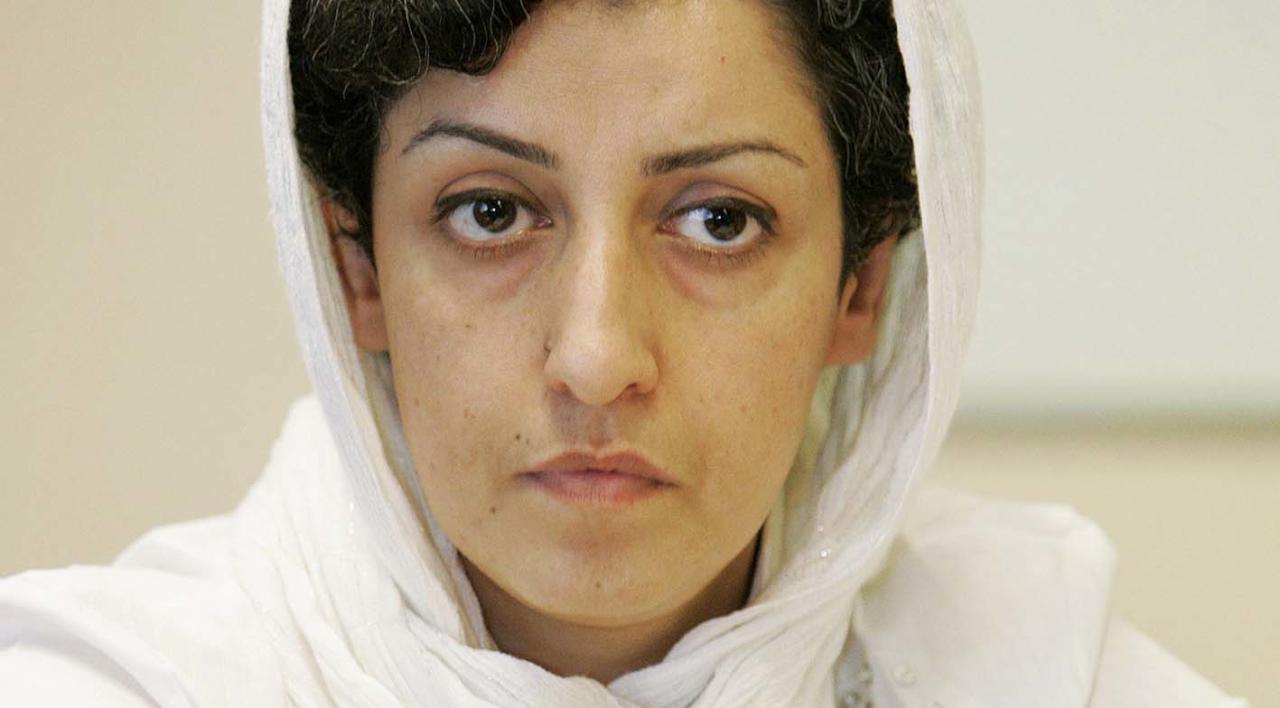SEPTEMBER 17, 2015
Narges Mohammadi Remains in Prison despite Doctors’ Request for Hospitalization
Imprisoned human rights activist Narges Mohammadi, who is in need of urgent medical care, will be put on trial on October 7, 2015, to face new charges, according to her husband, Taghi Rahmani.
Rahmani told the International Campaign for Human Rights in Iran that the new trial will be presided over by Judge Salavati at Branch 15 of the Revolutionary Court in Tehran. Salavati is well known for the harsh sentences he hands peaceful activists.
Mohammadi was charged with “collusion,” “assembly against national security,” and “membership in Step by Step to Stop Death Penalty,” . Two previous court dates for her trial, on May 3 and July 6 of 2015, were postponed .
In an earlier interview with the Campaign, Rahmani said he had learned there was a letter in Mohammadi’s file to Judge Salavati from the Ministry of Intelligence demanding the maximum penalty for Mohammadi.
The immediate concern, however, is Mohammadi’s health. On August 2, 2015, Mohammadi was taken from Evin Prison to Taleghani honhumanrighspital in Tehran, where doctors insisted she be hospitalized and seen by specialists as she was showing signs of neurological paralysis, but she was returned to prison within hours.
“Since her arrest [on May 5, 2015], Narges has been seen by neurologists three times and every time the doctors have said that she must be hospitalized to control her illness and prevent it from getting worse,” Rahmani said. “Even the prison infirmary’s doctor has stressed the need to hospitalize her but the Judiciary has so far refused to do so.”
Prison authorities in Iran systematically deny medical treatment to political prisoners, a practice that has resulted in the death of seven inmates since 2010.
Mohammadi’s husband, who is currently in Paris with their two children, added that for the past two months, the activist has also been denied the right to speak to her children on the phone. Denial of family visitation and furlough are other forms of punitive treatment typically handed out to political prisoners by the authorities in Iran.
“The Judiciary’s attitude towards Narges is beyond the framework of the law. It’s political. It’s vengeful,” Rahmani said. The activist’s husband criticized President Rouhani’s government for not delivering on its promise of reviewing the unfair treatment of prisoners of conscience.
Mohammadi, who has been internationally recognized for her human rights work, came under intense pressure from Iran’s security establishment after her March 2014 meeting with the European Union’s foreign policy chief Catherine Ashton at the Austrian Embassy in Tehran.
Her arrest on May 5, 2015, was ostensibly based on sentence dating back to a 2011 ruling that she had been unable to serve for medical reasons, but more accurately reflected official displeasure with Mohammadi’s continued rights activism in Iran.
source: http://www.iranhumanrights.org/2015/09/narges-mohammadi-health/

